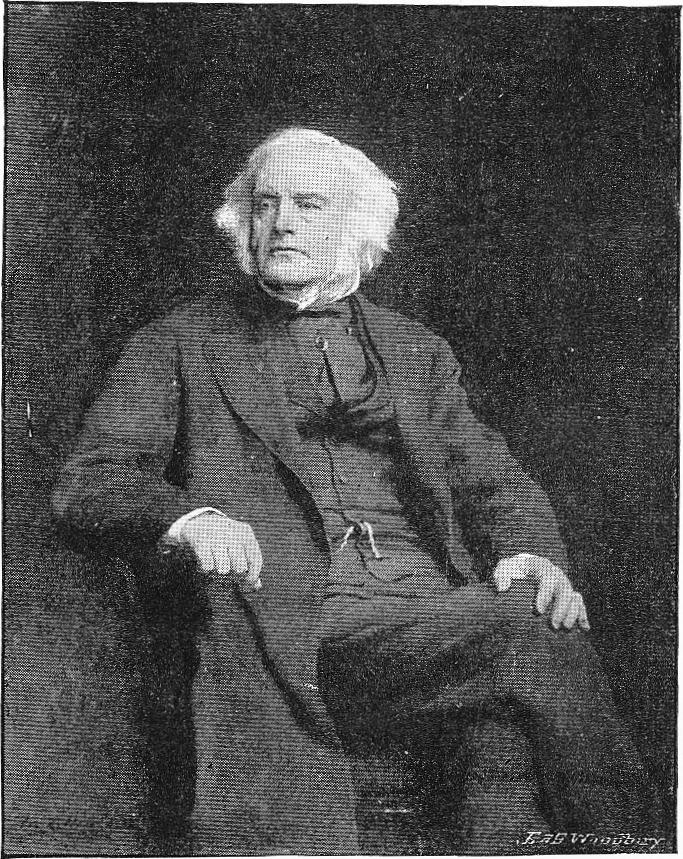|
The first
note of approaching storm was sounded on the eve of
the meeting of Parliament in February, 1842. The
Duke of Buckingham, Lord Privy Seal, resigned his
office and seat in the Cabinet on January 31. The
reason for this, as the Duke afterwards announced in
Parliament, lay in the following expression in the
Queen's Speech :—"I recommend to your consideration
the state of the laws which affect the importation
of corn, and of other articles, the produce of
foreign countries." This little sentence, wedged in
among the usual ceremonial or occasional paragraphs,
contained the kernel of the Ministerial programme,
and at once excited extraordinary interest in the
country. On February 9, when Peel was to propound
his scheme, the delegates of the Anti-Corn Law
League marched down in procession to Westminster,
and it required all the force of the police on duty
to keep them from taking possession of the lobby of
the House of Commons.

This League
was a remarkable organisation under a no less
remarkable leader. Richard Cobden, the son of a
yeoman farmer, was employed in his youth in a London
warehouse, and then became partner in a Manchester
cotton factory. He first attracted notice as a
pamphleteer, attacking some of the most cherished
traditions of British statesmanship. He travelled
far and wide on the business of his firm, and in
every country he visited his thoughtful mind
gathered material for the doctrines inseparably
associated with his name. He first entered
Parliament in 1841, being recognised at that time as
the leader of the movement in the country against
the corn duties. Mr. Charles Villiers had won for
himself the position of parliamentary head of the
Free Trade party ; to him Cobden came not as a rival
but as a wise, resourceful ally. A third figure was
soon to be added to this famous group in the person
of John Bright, a Quaker manufacturer in Rochdale. A
notable trio, each supplying the complement of the
other's qualities ; Villiers, of aristocratic birth
and connections, well acquainted with the rules and
peculiar temperament of the House of Commons,
ardent, industrious, and well informed ; Cobden, a
man of the people, temperate, just; " the apostle of
common-sense," and singularly persuasive ; Bright,
intensely—sternly in earnest, possessing gifts of
oratory denied to his colleagues, but exercising
them with a discretion rare among fluent speakers.
Lastly, one attribute shared equally by each of the
three men—absolute integrity and complete
disinterestedness. They were Radicals, but they
dissociated themselves from all ties of political
party, looking for no reward from either side, but
ready to support any Minister who would carry out
their views.
Site Copyright Worldwide 2010. Text and
poetry written by
Sir Hubert Maxwell is not to be reproduced without
express Permission.
|